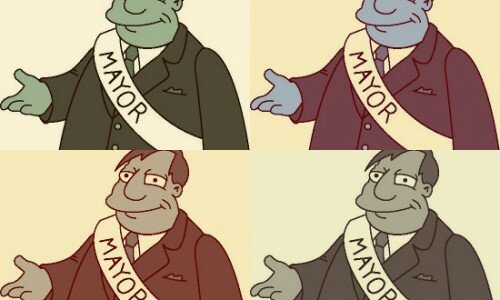
Want a metro mayor? Then, folks, you should have voted for a city mayor first
Eleven months ago, the good burghers of Birmingham decided they didn’t want their city run by a directly-elected mayor. It was a pretty conclusive result, with of voters rejecting the idea.
For those of us who thought that a college of big city mayors throughout the country was an excellent way of reviving moribund provincial capitals, while providing a counterweight to Whitehall’s love of clawing power to the centre, it was a thumping blow.
C’est la vie. Now, however, there is a new variant on the theme, the metro-mayor, which is doing the rounds. Promoted by Michael Heseltine in his bid to revive our great conurbations, the concept has gained strong support in parts of government and among the commentariat as a means of providing joined-up dynamic local leadership.
So much so, it seems, that last week Dan Crowe from the think tank argued that ‘[t]he age of the powerful yet accountable ‘Metro’ Mayor could soon be upon us.’
The argument goes that a metro mayor covering a cluster of authorities’ offers a larger scale and better reflects the London model than the now defunct city mayor idea did. ‘Government is opening the door’ Dan claimed, ‘it is now up to councils to act – and for their partners in the private, public and the third sector, together with citizens and communities to demand action.’
Metro mayors may or may not be a good idea, but it takes a bit more than ‘demanding action’ to get one, surely? Like the inhabitants of the floating island of Laputa in Gulliver’s Travels who dreamt up all sorts of fantastical inventions but couldn’t make them come to fruition, those calling for metro mayors have no mechanism to actually bring them about.
First off, top-down imposition of metro mayors is out – it is simply inconceivable that change of this scale could be imposed by ministers or even by panjandrums in the authorities affected without putting the idea to the electorates in the areas affected in local referendums. Here’s where the fun starts.
Securing buy-in between neighbouring councils that the idea was even a good one would be fraught, to put it politely. That’s before the Sisyphean negotiations begin, working out the exact demarcation between what a metro mayor would do and what will remain a matter for the individual local authorities.
Then add-in the problem of securing popular support for something the municipal cognoscenti mightunderstand but voters don’t. We saw during last year’s vote on a city mayor that if people don’t really comprehend what’s it’s all about, they reject the idea.
Eighteen months ago, talks in Merseyside about creating a metro mayor foundered for precisely these reasons. The people of St Helens may sound like scousers, but the town was, pre-1974, firmly in Lancashire. The thought of being Mini-Me to Greater Liverpool was laughed out of town, despite what municipal big wigs in Liverpool wanted. The same will happen in Birmingham, which already casts a long shadow over its neighbouring boroughs.
Even in Greater Manchester, the mecca of municipal joined-upness, there is little prospect of ever convincing strong, independent towns like Bolton, Bury, Oldham and Wigan that a Manchester-based metro mayor should take strategic decisions affecting them. What happens when a decision to award something to one town comes at the expense of an adjacent borough? The key decisions are all taken by some chap in Manchester Town Hall. A ‘Manc’ for Heaven’s sake!’
The difference with the Capital is that Londoners are Londoners regardless of whether they live in Hackney or Camden. Boltonians are not Mancs. In the same way people from Coventry are not Brummies.
The idea of metro mayors is usually talked up by people in local government who don’t knock on voters’ doors; otherwise they would know in their marrow that there is no getting this high concept idea past a sceptical electorate. Meanwhile, ensuring there is proper ‘subsidiarity’ – decisions are taken at their lowest relevant level – is a recipe for constant rowing between the metro mayor and individual local authorities. It’s also a reinvention of two-tier working when the idea is actively being phased out elsewhere.
Back to city mayors though. If last year’s referendum had been successful, the new Mayor of Birmingham would be coming up to his or her first six months in the job. We might now be seeing the tentative start of a conversation about the value that a strong, identifiable champion for the city was adding.
We might then be talking of taking the idea to the next level and convincing the wider conurbation that the model could be extended to include them. This is the only way of getting a metro mayor – growing the idea organically from the success of the smaller city-wide version.
So, dear Brummies, given you made your mind up on that issue last year, there’s not really much to discuss. A metro mayor for Greater Birmingham is a total non-starter.
- Kevin Meagher supported Sion Simon’s bid to become elected mayor of Birmingham






